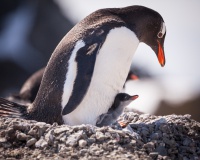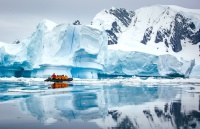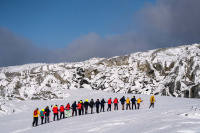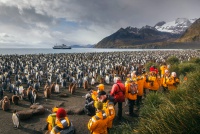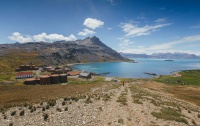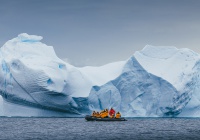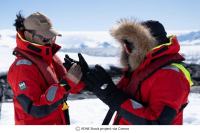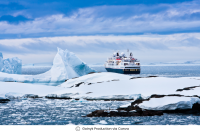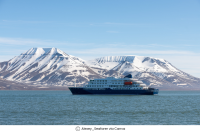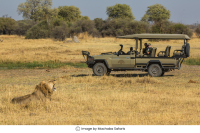-
Responsible travel in Antarctica
Antarctica beckons adventurers seeking its breathtaking landscapes. Over 1,00,000 visitors travelled between 2022 and 2023 to explore this icy paradise - A place that’s inhospitable and challenging, yet romantic and adventurous. However, with global warming rising steadily, exploring this untouched realm comes with a responsibility—one that intertwines thrill with conscientiousness. And that’s what we’ll do in this blog.
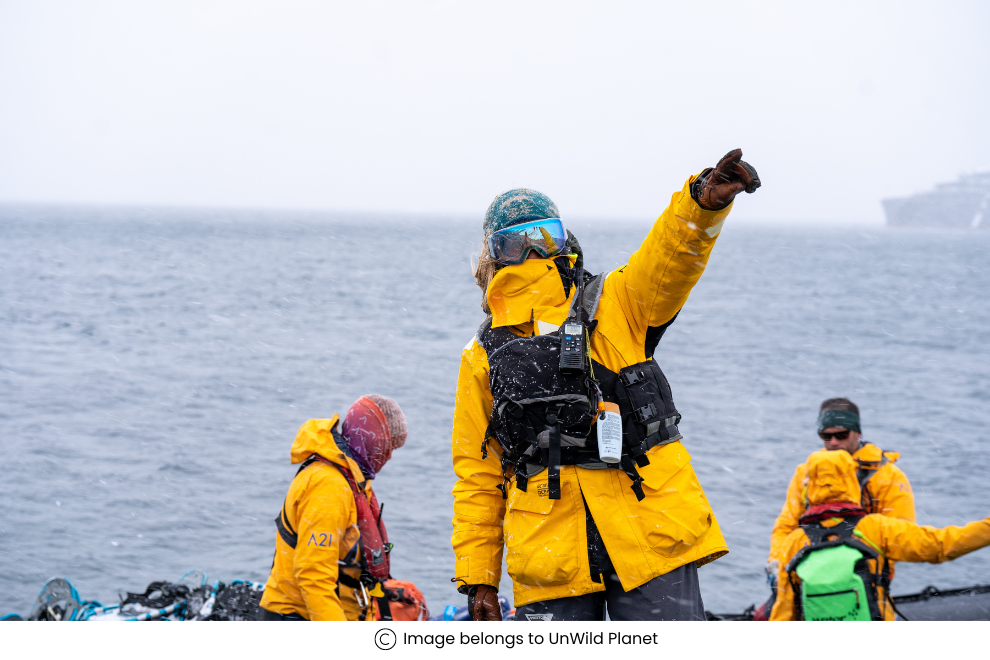
From wildlife encounters to awe-inspiring vistas, an UnWild Planet expedition delves into ways to cherish this fragile ecosystem.
Consistently increasing footfalls in this fragile ecosystem amplifies the risk of ecological disruption and habitat disturbance.
By embracing sustainable practices and adhering to strict guidelines, we can harmonize the thrill of exploration with the imperative of safeguarding Antarctica's delicate ecosystems.
Environmental Importance:
-
Climate Regulation:
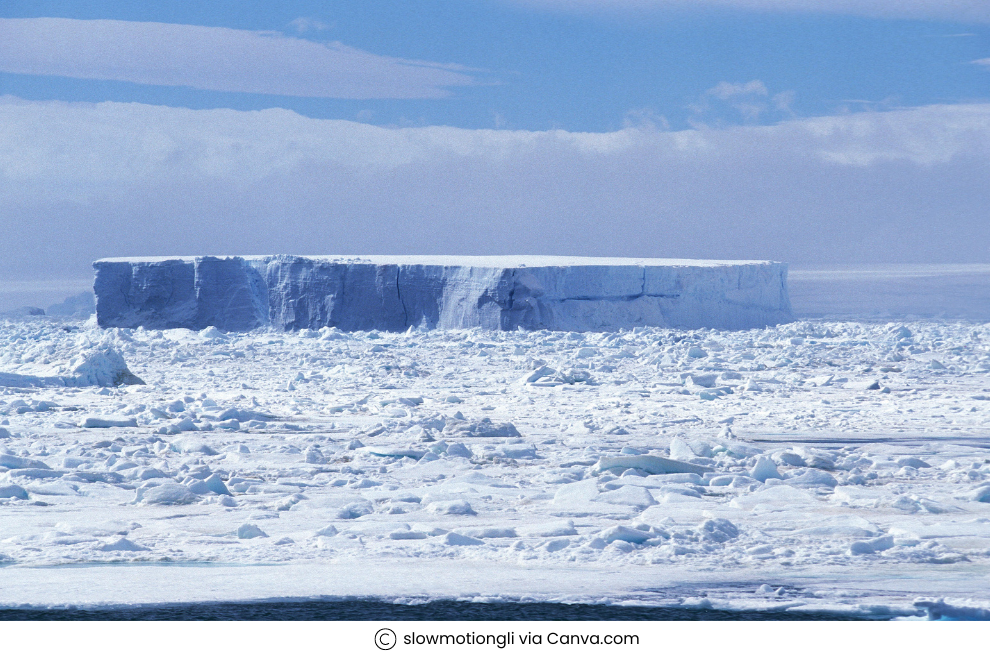
Antarctica's ice sheets and glaciers play a pivotal role in regulating global climate patterns by reflecting sunlight back into space, affecting ocean currents and atmospheric conditions.
-
Sea Level Stability:
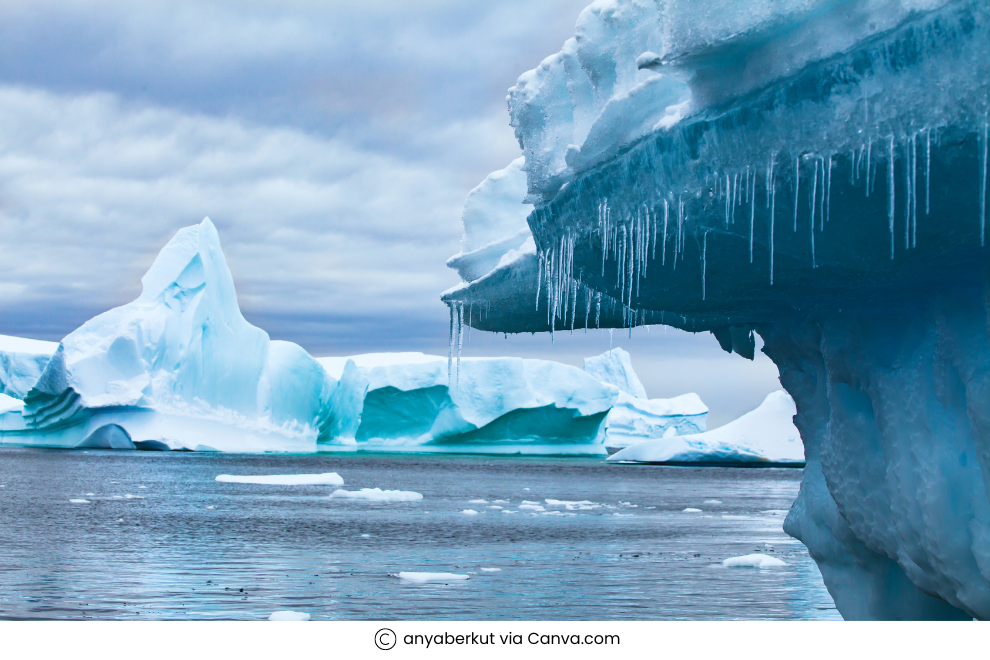
The ice shelves and land-based ice sheets store around 70% of the world's freshwater, significantly impacting global sea levels. Melting ice in Antarctica could lead to drastic rises in sea levels, impacting coastal regions worldwide.
-
Biodiversity Support:
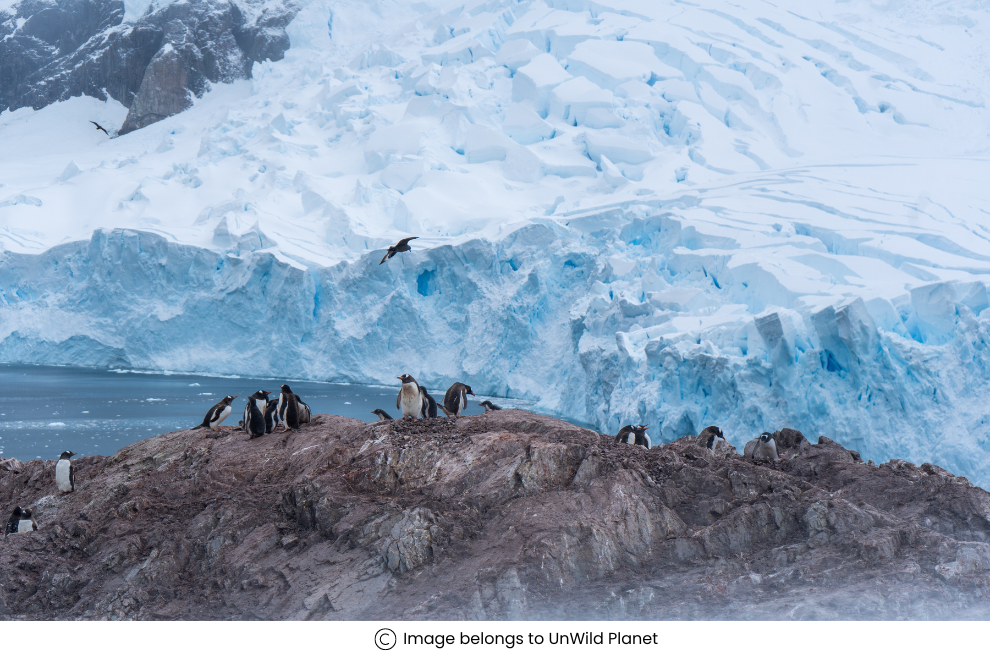
Despite the harsh conditions, Antarctica sustains diverse wildlife, including penguins, seals, whales, and unique species of fish, birds, and invertebrates, making it a crucial biodiversity hotspot.
Ecological Significance:
-
Unique Ecosystems:
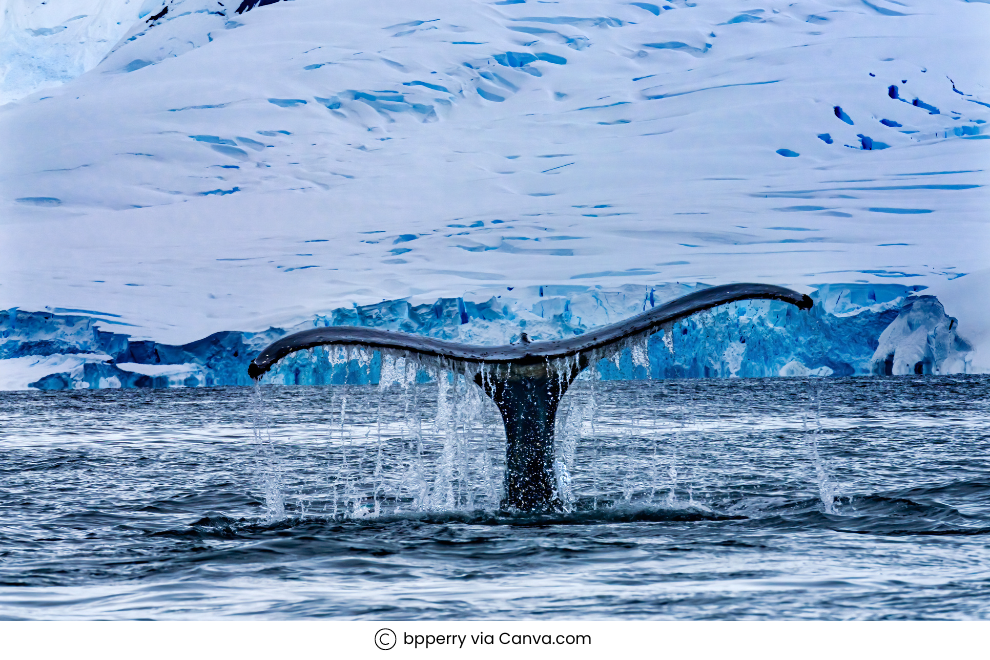
Antarctica harbours distinct terrestrial and marine ecosystems that have evolved in isolation, hosting species found nowhere else on Earth.
-
Keystone Species:
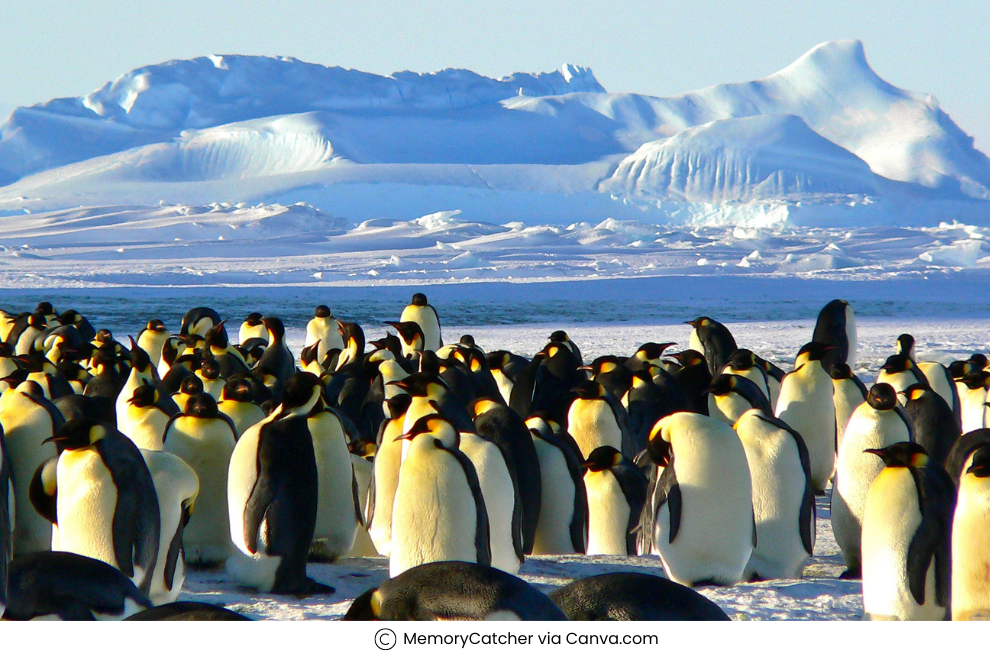
Penguins, krill, and seals are keystone species in the Antarctic food web, playing vital roles in maintaining ecological balance and supporting other species' survival.
-
Vulnerable Habitats:
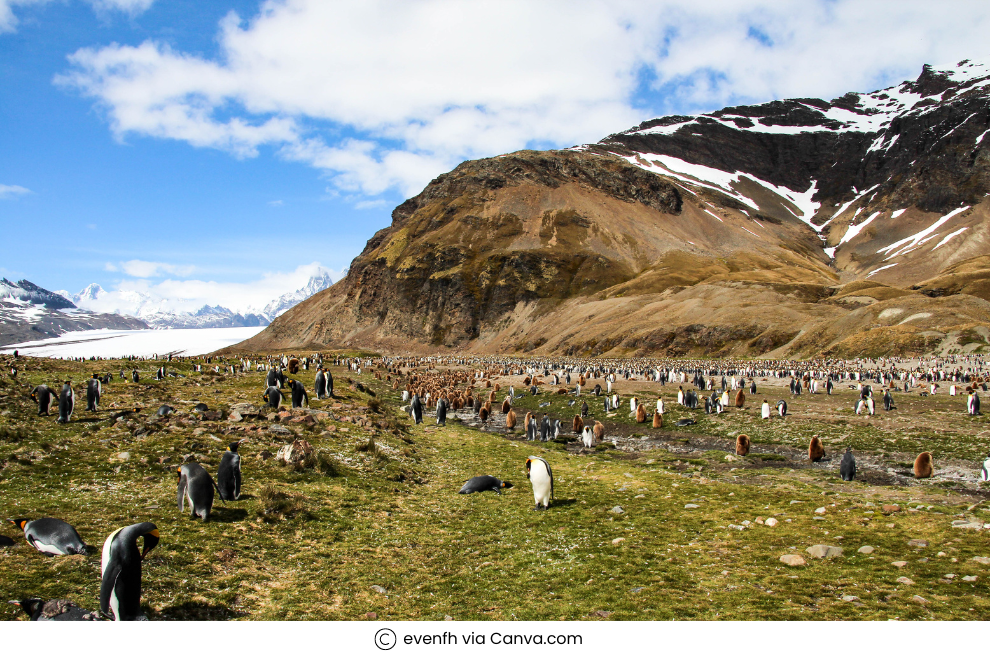
Delicate mosses, lichens, and algae thrive in Antarctica's limited ice-free areas, representing some of the most vulnerable ecosystems to environmental changes.
Scientific Importance:
-
Climate Studies:
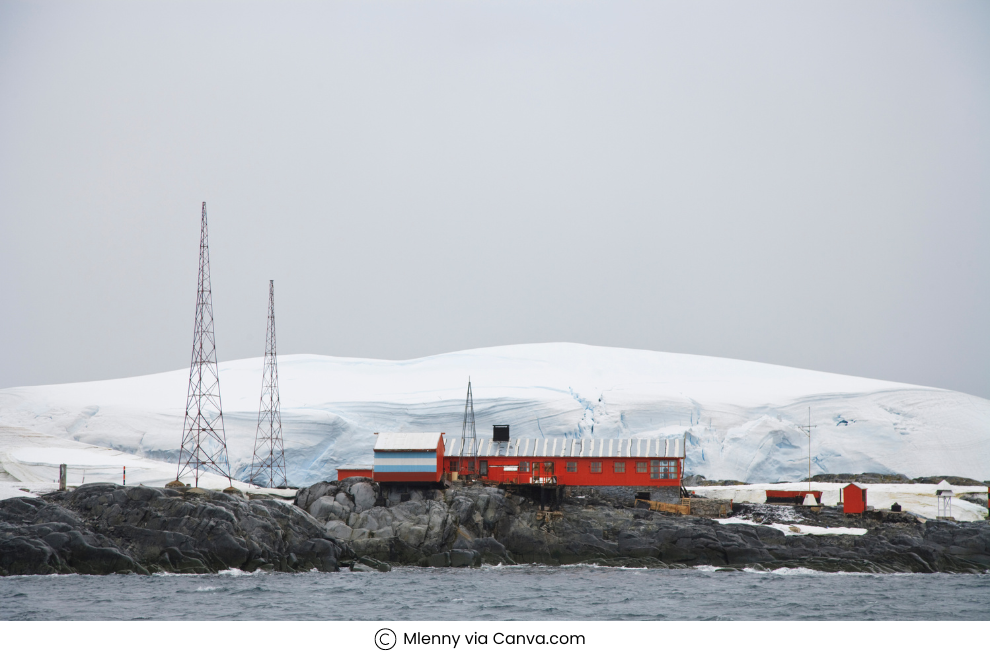
Antarctica's ice cores preserve records of past climates, aiding in understanding historical climate patterns and predicting future changes.
-
Space Exploration Analog:
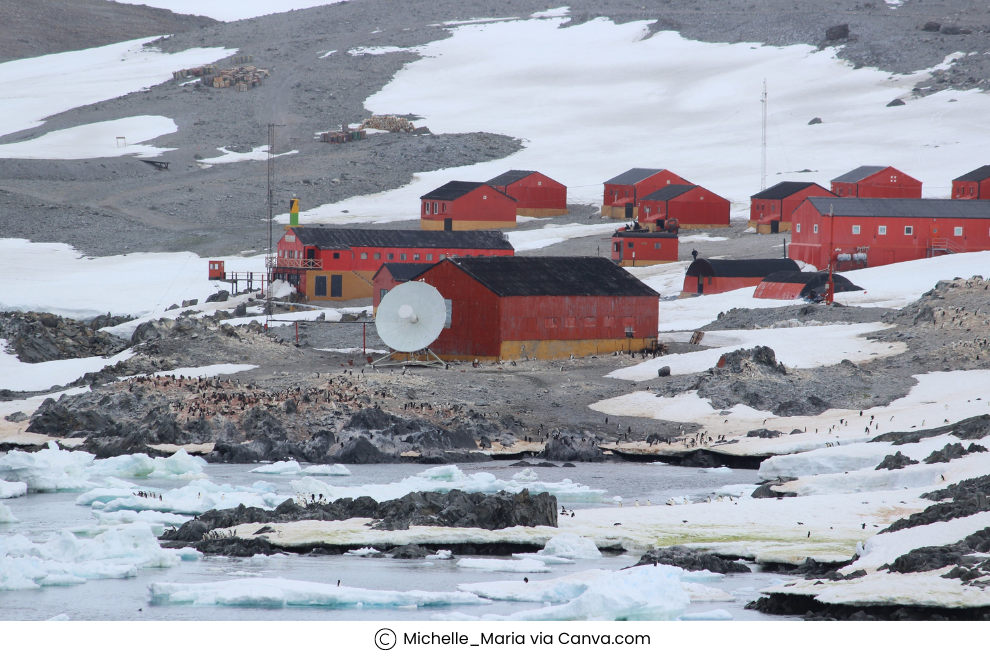
Its extreme conditions provide a valuable testing ground for studying life forms and technologies for potential space exploration missions.
-
Astrobiology and Evolution:
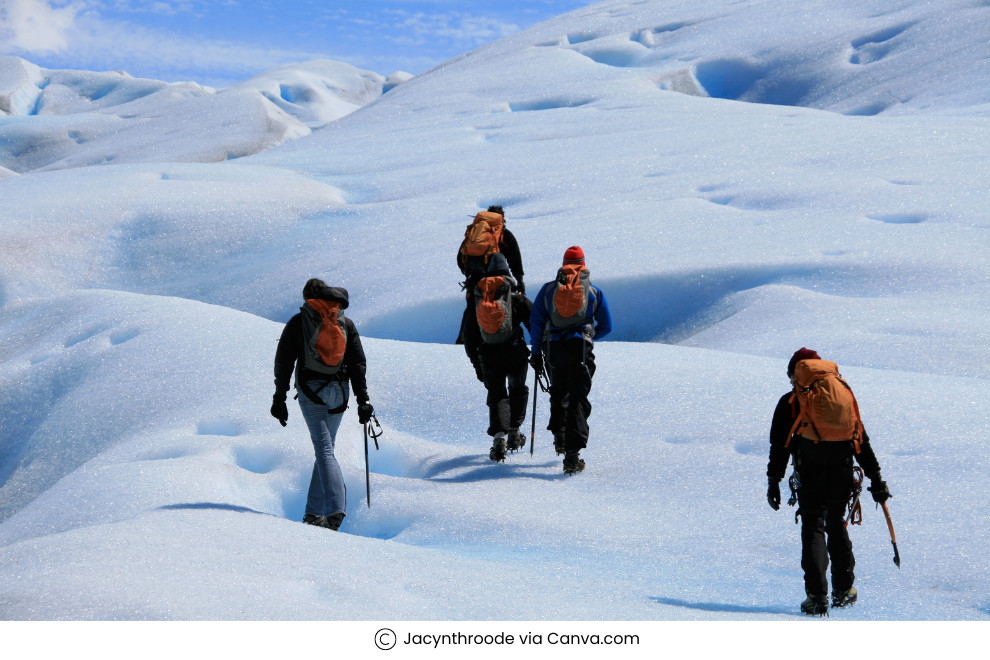
Unique extremophiles found in Antarctica's harsh environments offer insights into life's potential in extreme conditions and Earth's early history.
Understanding and preserving Antarctica's environmental, ecological, and scientific significance is crucial for global conservation efforts, climate research, and advancing scientific knowledge. It necessitates responsible exploration, stringent environmental regulations, and collaborative international efforts to ensure the protection and sustainability of this pristine continent for generations to come.
Being a responsible traveller is not an additional chore while travelling
While there is a constant tussle between whether or not to go to Antarctica there is no denying that increased vessel movement in the region is contributing to a better understanding of the region. The data collected from Citizen Science projects have turned the visitors into researchers adding to Antarctica conservation. The research teams who form a part of most of the cruises now work towards sharing their wealth of knowledge with the passengers and further making them advocates for protecting the eco-system from mass scale mining.
If you think one of the cruise vessels in the South Georgia Islands were able to provide significant photographic evidence of damages caused to wildlife from a supposed virus in the region.
One of the projects of Citizen Science program is Happy Whale which allows photographers to submit their photos of whale’s Fluke and thanks to the thousands of these photos the scientists have been able to build a database of 322,000 encounters out of which 280,000 have been successfully identified.
Therefore till the time the ships in Antarctica is focused on science and peace it is contributing to the conservation of the eco system which is extremely hard to get to by scientists alone.
Cooperating with local authorities and respecting norms make this convenient. The International Association of Antarctic Tour Operators (IAATO) have established guidelines that ensure responsible tourism in Antarctica:
-
Visitor Limits: Regulate the number of visitors at specific landing sites to minimize ecological impact. Ships with over 500 passengers are not permitted to land on Antarctica.
-
Wildlife Protection: Maintain and adhere to all safety distance guidelines from wildlife to prevent disturbance. Example: Visitors are supposed to maintain a distance of at least 5 meters from wildlife and, they are not allowed to touch any wildlife
-
Waste Management: Implement strict waste disposal protocols that ensure visitors leave no trace behind. Tour operators can’t dispose or discharge radioactive waste. Visitors should carry reusable cups, saucers, cutlery etc. that can be returned with them. People can’t carry any pets to Antarctica. They have to wash their shoes, backpacks, and clothes before (so that they don’t carry any non-native soil and pests into the continent) and while leaving (so that they don’t carry anything from Antarctica).
-
Site Specific Protocols: That help visitors follow site-specific guidelines to protect fragile ecosystems. For instance, visitors can’t disturb experimental study sites, field camps or supplies.
-
Educational Briefings: Turn to comprehensive pre-visit briefings that help educate visitors on responsible behaviour. Pre-departure information is sent to potential clients about Antarctica and their trip includes details on how to be a responsible Antarctic visitor, such as IAATO’s Don’t Pack a Pest Leaflet and ATCM agreed Visitor Guidelines.
-
Qualified Staff: Who oversee adherence to guidelines and ensure visitor safety.
- Emergency Response: That helps maintain robust contingency plans for emergencies, prioritising safety and environmental preservation.
Selecting a responsible tour operator for Antarctica:
If this destination is on your must visit list or bucket list for 2024, here are six key things you can do while selecting a responsible tour operator for Antarctica:
- Certification: Look for operators affiliated with IAATO, showcasing commitment to responsible practices.
- Environmental Policies: Research their environmental policies, emphasising minimal impact, waste management, and wildlife protection.
- Expertise: Assess their experience, trained staff, and commitment to educating visitors on responsible behaviour.
- Group Size: Opt for operators limiting group sizes to minimise environmental impact at landing sites.
- Feedback & Reviews: Consider reviews and feedback from past travellers regarding their adherence to sustainability principles.
- Transparency: Seek transparency regarding their operations, partnerships, and sustainability efforts for a well-informed decision.
Preparing for Antarctica requires meticulous planning, here’s how you can go about it:
- Health Clearance: Obtain medical clearance, ensuring fitness for the harsh environment.
- Clothing & Gear: Pack appropriate, layered clothing, waterproof gear, and sturdy footwear.
- Travel Documentation: Arrange necessary visas, permits, and travel insurance.
- Health & Safety Briefing: Attend pre-trip briefings on safety measures and environmental guidelines.
- Photography Gear: Bring cameras, batteries, and equipment suited for extreme temperatures.
- Mindful Packing: Limit waste by avoiding single-use plastics and bringing reusable items.
- Expectations: Prepare for unpredictable weather and wildlife encounters, embracing the adventure responsibly.
Exploring Antarctica offers unparalleled beauty intertwined with a profound responsibility. As the icy wonderland captivates with its grandeur, the essence of responsible travel becomes significant. Carry the spirit of conscientious exploration, where wonder is backed by action. Embracing this ethos safeguards Antarctica's fragile marvels, nurturing a harmonious relationship between human curiosity and the sanctity of this extraordinary continent. Together, let's forge a path where adventure and responsibility coexist in preserving Antarctica's timeless magnificence.
Ready to embark on your next adventure? Fill out the form below and let our experts curate your dream getaway!
All Fields are mandatory*-
Related Tours
-
Recent Blogs
-
